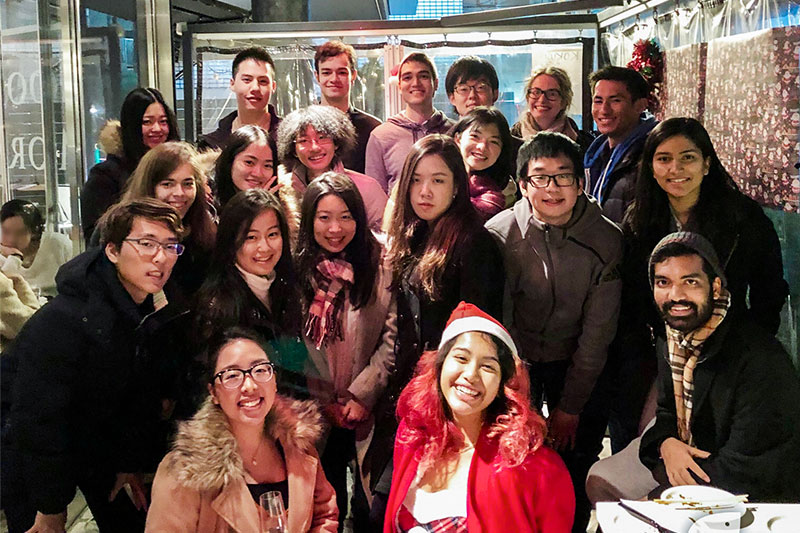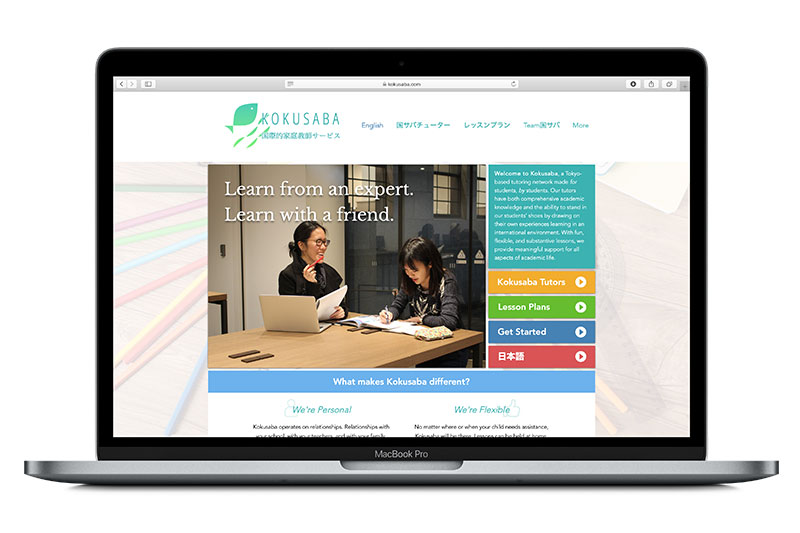In an increasingly connected world, the founders of Japanese educational company Kokusaba are helping young people equip themselves with the tools to become global citizens through a more personal approach to teaching in Japan.
Kokusaba, short for ‘international survival’ in Japanese, is a personalised, one-to-one tutoring company founded by two students who want to help others like them have a global outlook on life. Having had a first-hand experience of the awkward transition of moving between schools in different countries, Founders Ishanaz and Minoru strove to make this transition easier for others – by setting up a service that connects university students who have relevant subject-based and international experience with younger pupils who need help adjusting. “Of course technology helps, but the tutors can provide deeper and more insightful experiences that technology can’t,” CSO Andie says. With courses that range from language lessons to SAT applications, they talk to Hive Life about what they’re doing to help students grow in an environment that requires cross-cultural awareness.

Seeing the growing demand for Japanese students to go abroad, Ishanaz and Minoru set up Kokusaba in 2017 while studying at Waseda University in Tokyo. “Recent government initiatives aim to increase the number of Japanese students studying abroad, so we know the interest is there to learn English and study internationally,” says Minoru. “Some of my students have never experienced life outside of Japan. At Kokusaba, we give them their first exposure to our global roots by sharing our own experiences and insights from the lives we have lived, and the people we have interacted with,” says Aditya, a tutor at Kokusaba.
In their early years of education, Ishanaz and Minoru saw the importance of language in learning. Born and raised in Japan, Ishanaz found it difficult when she moved to an international school in Singapore. “I found it hard to adapt to an environment where everything was conducted in English. There were many Japanese kids around me who struggled in the same way. A student who is unfamiliar with the language might struggle to follow the English curriculum for all subjects, regardless if they have an excellent academic record in Japanese or not. This not only affects their grades and their self-esteem, but also how they perceive themselves socially,” she adds.” On the flip side, Minoru witnessed how language worked to his advantage when he moved back to an international school in Japan after seven years of schooling in Canada. “I found myself performing at the top of my class. I soon realised that this wasn’t necessarily because I was any smarter or more hardworking than my classmates. I was simply more used to learning in an English environment.”
You might also like Play as Serious Learning
The pair identified a gap in what they saw as a failure of their hometown’s education system to inspire foreign language learning in a creative and inspiring way. “English communication skills are still treated as just another subject in school, rather than the invaluable tool they are,” Minoru states. “The curriculum is structured in a way that makes language learning much too complicated. Learning grammar almost resembles mathematics,” says Ishanaz. “International school students tend to be a lot more comfortable with forming their own opinions rather than retaining and interpreting opinions and information gained from others. Incorporating that element of instilling initiative and independent thinking could benefit local Japanese students,” says Minoru.

To help parents and their children to navigate the educational maze, Kokusaba hand-picks tutors with relevant diverse experiences to match up with pupils. “The variety of international curricula offered at international schools is confusing,” remarks Ishanaz. “Most of us are at universities with a sizable international population, therefore we exist in a more diverse environment than the average person in Japan. It allows us to be mindful, inclusive and confident; these qualities are what we transmit to our students, enabling them to fully enjoy their unique international experiences,” Aditya says. “I would say roughly three-quarters of our students grew up in Japan with Japanese as their native language, while the rest of our students have overseas backgrounds.”
Setting up a business whilst being at university wasn’t all that easy, but the duo has a few pointers for those who want to do the same. “I stopped seeing ‘work’ and ‘life’ as separate entities. Work is part of life. I feel like you can successfully multitask if you know what your priorities are and know each of their purposes,” says Ishanaz. Staying optimistic is also key, according to Minoru. “You may end up wondering, “The world is a sea of seven billion people. How am I ever going to stand out and get noticed?” You don’t have to tackle the entire world all at once. Instead, see the world as seven billion chances to impress someone and make them believe in you. Those seem like pretty good odds to me!”





